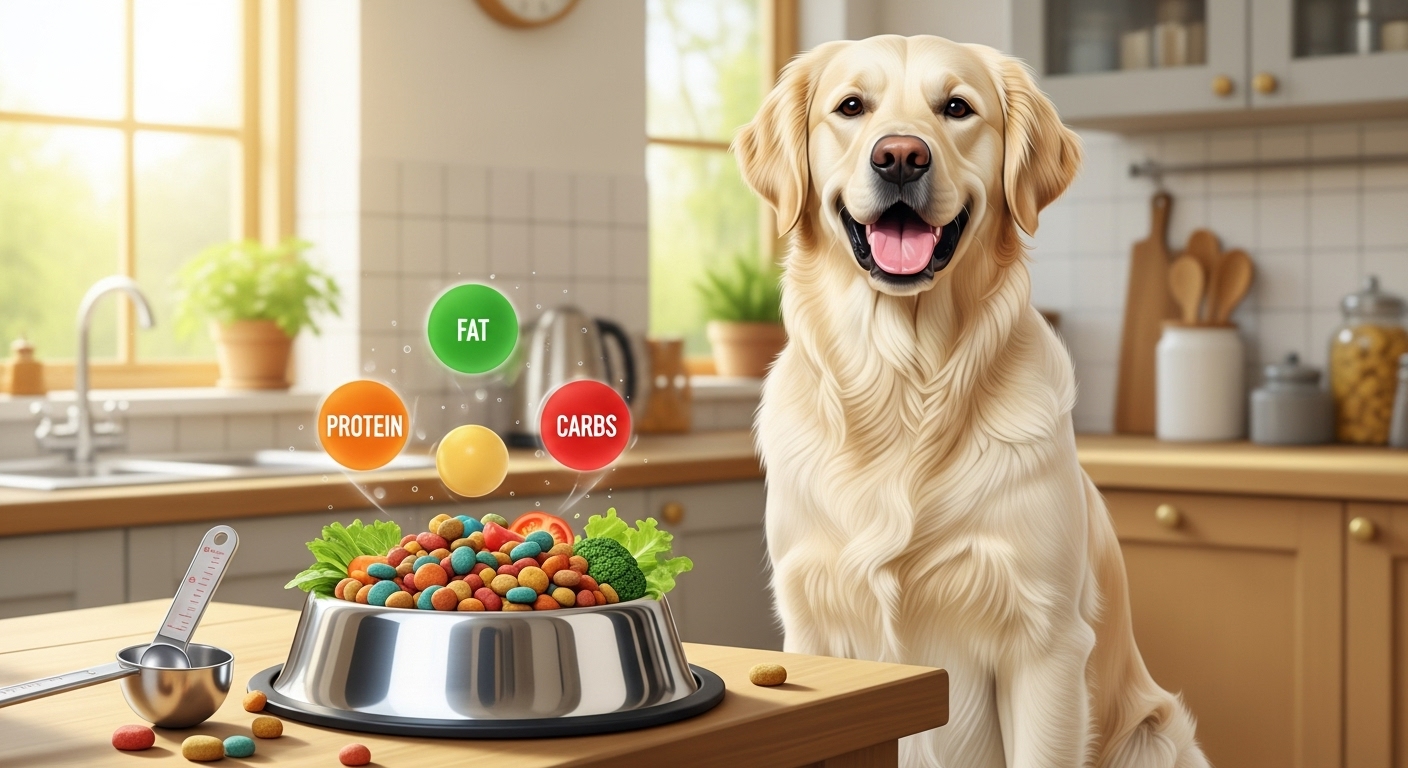Intro
Feeding your dog isn’t just about filling a bowl—it’s about giving them the right mix of nutrients to thrive. Think of a balanced diet like a well-orchestrated symphony: proteins, fats, carbs, vitamins, and minerals all hitting the right notes.
Why Protein Matters
- Muscle maintenance & growth: Dogs need high-quality animal proteins (chicken, beef, fish) to build and repair tissues.
- Immune support: Amino acids from protein help make antibodies.
Fats: Not the Villain
- Energy powerhouse: Fat provides twice the calories per gram compared to protein or carbs.
- Skin & coat health: Omega-3 and Omega-6 fatty acids keep fur glossy and skin itch-free.
Carbs for Fuel & Fiber
- Sustained energy: Rice, sweet potatoes, and whole grains fuel daily adventures.
- Digestive health: Fiber from veggies helps regulate poops—no surprises on your morning walk!
Vitamins & Minerals
- Bone strength: Calcium and phosphorus keep teeth and bones sturdy.
- Overall wellness: B-vitamins, vitamin E, zinc, and iron support metabolism, vision, and red blood cells.
Putting It All Together
- Choose a high-quality commercial kibble or fresh diet that lists meat as the first ingredient.
- Rotate proteins weekly to prevent allergies.
- Supplement wisely—only under vet guidance (e.g., fish oil, probiotics).
Wrap-Up
A balanced diet sets the stage for a happy, energetic doggo. Keep an eye on ingredient lists, tailor portions to your dog’s age and activity level, and always have fresh water on standby.

